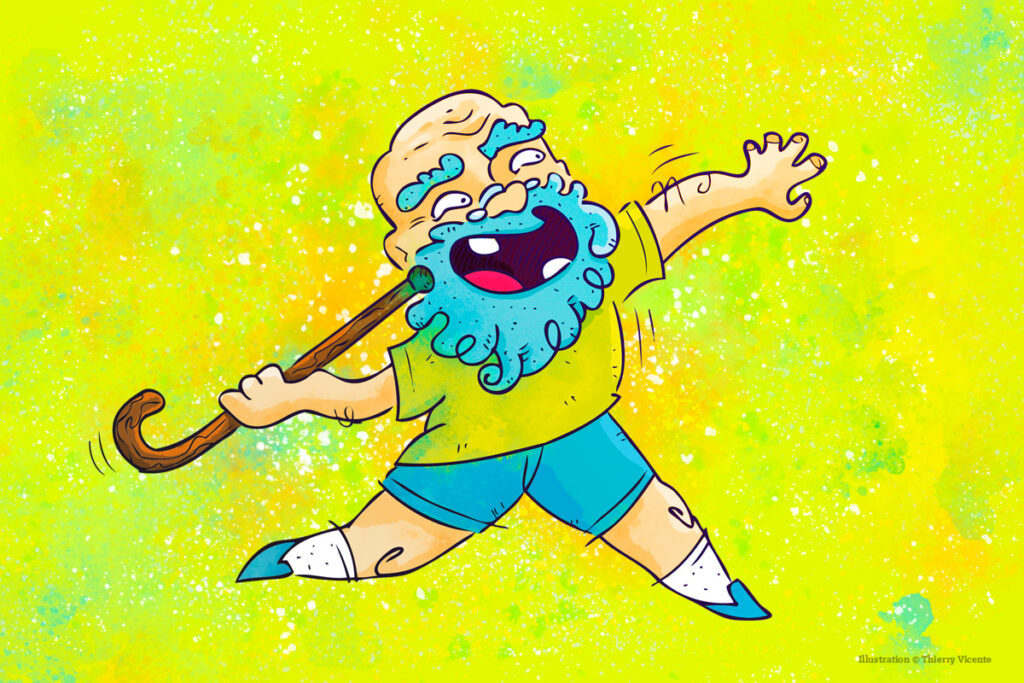[LUM#4] Move more, age less
Is physical activity the key to eternal youth? It is certainly the surest path to healthy aging. This is excellent news in a world where life expectancy continues to increase.

For a long time, old age was the end of life. "In the 1970s, anyone over 65 was considered elderly," explains Jean-Marie Robine. "At that time, we thought we had reached the limits of human longevity," recalls the head of the "Longevity and Vitality" team at the "Molecular Mechanisms in Neurodegenerative Dementias"laboratory. However, life expectancy continues to increase. It now stands at 86 years for women and 78 years for men, placing France at the top of the European rankings.
Aging in good health
So much so that a new category has emerged: the fourth age. And why not soon the fifth? Because life expectancy continues to increase, rising by three months every year. "The fourth age is getting longer, with its inevitable share of physical difficulties," warns Jean-Marie Robine. Because while life expectancy continues to grow, "disability-free" life expectancy, as researchers call it, is stagnating. And France is not doing particularly well in this regard. "We may be number one in Europe for life expectancy, but we only rank tenth in terms of disability-free life expectancy," says Grégory Ninot, director of the CEPS Platform, a center for the evaluation of health prevention programs and non-drug interventions.
And when it comes to the ravages of time, we are not all equal... While some centenarians continue to ride their bikes every morning, some septuagenarians already struggle to get around. Where does this inequality come from? Partly from genetic factors: they account for 25% of the quality of aging. But that's only the tip of the iceberg. For the remaining 75%, the determining factor is lifestyle. This is good news, because while it is still impossible to change our genetic makeup, we can adopt behaviors that promote better aging.
Pierre Louis Bernard, a researcher at the European Movement Research Center ( EuroMov), is working with Grégory Ninot to study the effects of physical activity on aging. "Physical activity leads to a significant improvement in independence and quality of life," the specialists emphasize. However, there is no need to train for a marathon: the researchers recommend regular moderate physical activity such as walking, ideally five 30-minute sessions per week. "What matters most is regularity," says Grégory Ninot. "As for the rest, there is no perfect formula; the ideal approach is to offer personalized care."
Customized physical activity
This "tailor-made" approach involves assessing the health of elderly people in order to offer them physical activities suited to their needs. The "Balance and fall prevention to improve the independence of elderly people" program, launched as part of the Macvia project, is based on this personalized prevention approach."This program, set up in partnership with Montpellier University Hospital, involves meeting with each senior citizen in the municipalities to assess their individual functional abilities and plan appropriate physical activities," explains Pierre Louis Bernard. The goal is to reduce the risk of falls, one of the main causes of hospitalization and dependence among seniors.
"Physical activity helps people take control of their health and allows them to play an active role in their aging process,"adds Pierre Louis Bernard. And even if you've always been sedentary, experts remind us that it's never too late to start: "Regardless of the age at which you begin exercising or your current state of health, physical activity always brings tangible benefits."
Conscientious ages better
What if our personality influenced how we age? "There are personality traits associated with an increase or decrease in age-related decline," explains Yannick Stephan from the Epsylon laboratory. Conscientious, highly organized people who show a strong tendency toward self-discipline, for example, are more likely to age well. "This is probably because being conscientious leads them to engage in fewer risky behaviors—smoking, drinking, sedentary lifestyles, poor diet, etc.," explains the researcher, who specializes in health and aging psychology. This is in contrast to anxious people, who exhibit a high level of emotional instability. "Anxious people are therefore more likely to suffer from cardiovascular disease or Alzheimer's disease," explains the researcher. Should we change to age better? " We can't change people's personalities," emphasizes Yannick Stephan, "but we can identify those who are at risk and put preventive measures in place to improve the quality of aging."
Find UM podcasts now available on your favorite platform (Spotify, Deezer, Apple Podcasts, Amazon Music, etc.).